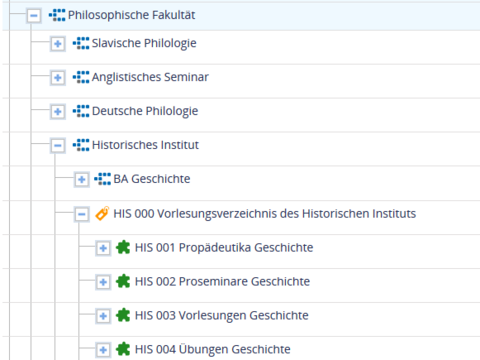Lehre
Lehrveranstaltungen
FSS 2023
Proseminar:
- „An Age of Crisis?: Famine, Plague and the Transformation of Late Medieval Europe“ (Jun.-Prof. Dr. Alex Spike Gibbs)
- Beschreibung: In this course, we will analyse the „Age of Crisis“ in the fourteenth century and assess the credibility of the claims made about its effects found in the secondary literature. We will engage with primary sources, using a range of materials including chronicles, legislation, court records, letters, quantitative data, images, and literature. We will also draw on an array of methodological approaches ranging from close readings of texts to the interpretation of graphs and tables. By the end of the course, you will have gained a good understanding of key subjects in medieval history and have thought more broadly about what drives processes of historical continuity and change.
- Zur Anmeldung
Hauptseminar:
- „Women in Economic History (BA)“ (Jun.-Prof. Dr. Alex Spike Gibbs & Verena Weller)
- Beschreibung: Gender equality in employment is a vital issue today. Despite advances made in recent decades, 2.4 billion women globally of working age are not afforded the same economic rights as men, and in Germany, women on average earn 18% less than men do. This course seeks to understand the factors that both promote and inhibit female economic activity, by examining historical societies throughout Europe and North America. In what spheres were women able to operate? What impact did patriarchal legal, cultural and political structures have on female activity? How far did industrialisation and new technologies change women’s work? And how can we observe and quantify women’s economic contributions with the fragmentary and biased historical sources available?
- Zur Anmeldung
Forschungsseminar:
- Forschungsseminar (Oberseminar): Neue Forschungen zur Mittelalterlichen Wirtschaftsgeschichte (Dr. Tanja Skambraks & Jun-Prof. Dr. Alex Spike Gibbs)
- Das Forschungsseminar bietet einen Einblick in aktuellste Forschungen zur mittelalterlichen Wirtschafts- und Sozialgeschichte in einer international vergleichenden Perspektive. Forscherinnen und Forscher aus Großbritannien, Frankreich und dem deutschsprachigen Raum werden ihre Ergebnisse und Themen zur Diskussion stellen. Das Seminar wird auf Englisch stattfinden.
- Zur Anmeldung
HWS 2022/
23 Proseminar:
- „Making a Living in Late Medieval England“ (Jun.-Prof. Dr. Alex Spike Gibbs & Nina Schall)
- Beschreibung: The need to make a living is a universal feature of life today and the same is true of the past. However, the nature of gaining an income is highly dependent on the specific features of an economy and society, including educational opportunities, social norms, distributions of political power, levels of urbanisation and market structures. In this course, we will consider these issues for late medieval England. This course will examine a range of different social groups in a variety of economic sectors. We will consider incomes gained in agriculture, manufacturing, and services, and examine the experiences of lords, peasants, townsmen, merchants, lawyers, sex workers, soldiers, and paupers. We will draw on an array of primary sources including laws, accounts, court records, quantitative data and poems. By the end of the course, you will have gained an overview of a range of topics in late medieval history and have thought more deeply about the nature of earning and work.
Hauptseminar:
- „The Great Divergence. Economic Development and Stagnation in Preindustrial Western Europe and East Asia (BA)“ (Jun.-Prof. Dr. Alex Spike Gibbs)
- Beschreibung: Why was western Europe, rather than any other part of the world, the first region to industrialise and experience modern economic growth? This is the question that lies at the heart of debate over “The Great Divergence”, Pomeranz’s seminal work of 2000 which argued that geographical chance, rather than institutional or cultural differences, explains the dramatic gap in wealth which emerged between Europe and the rest of the world in the nineteenth century. In the last two decades, multiple explanations have been put forward centred on agricultural systems, incentives for technological innovations, state formation, warfare, colonialism, and culture. In this course, we will explore a wide range of these interpretations within a comparative framework comparing the two ends of the Eurasian landmass and taking a long-time span between c.1000 and c.1800.
Anmeldung über Portal2
Unsere Seminare, Übungen und Vorlesungen finden Sie im Portal2.
Wir bieten jedes Semester neue Lehrveranstaltungen an. Sie finden diese nach Semestern gegliedert im Portal2.
Im Portal2 klicken Sie auf „Studienangebot" > „Vorlesungsverzeichnis anzeigen“, klappen dann „Philosophische Fakultät“ und danach „Historisches Insitut“ auf. Dort finden Sie unter „HIS 000 Vorlesungsverzeichnis des Historischen Institut“ das vollständige Angebot.
